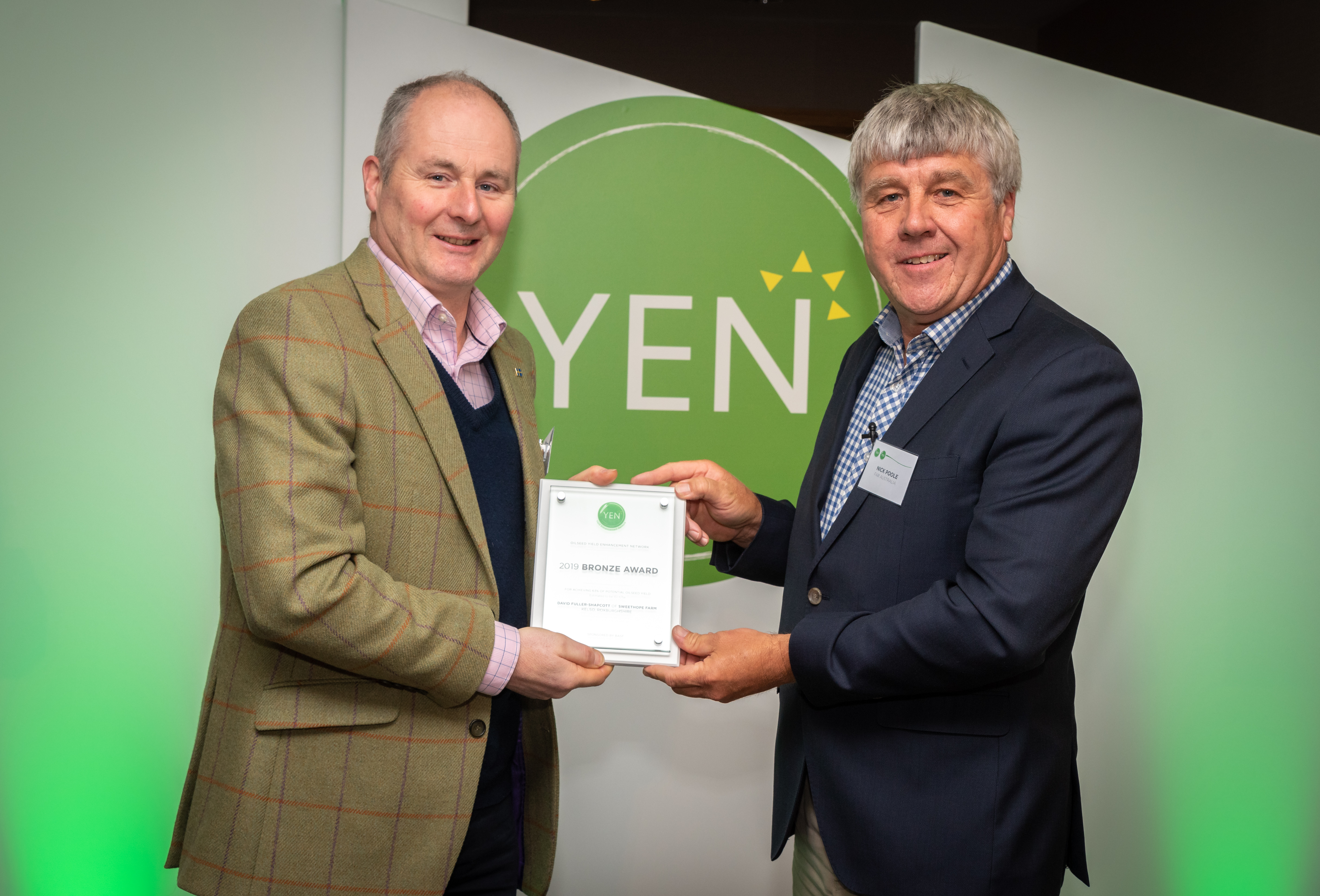- Home
- David Fuller-Shapcott
David Fuller-Shapcott
Scottish Borders, Roxburghshire
800 acres of arable ground, with some grass for livestock finishing. David won the 2019 YEN Bronze Award for best % of potential yield for a field of Oilseed Rape achieving 63% of 10.1 t/ha potential.
What made you want to be a part of the YEN competition?
I have been in the YEN since the start and it has been a long journey, but it is a journey about learning, and I see some of it as a continuing professional development for me. I am a firm believer that without change you can’t expect things to get better. The YEN is a platform for innovation and change and I learn something every year from being a part of it.
Are there any specific yield issues you wanted to focus on?
The key issue is managing the weather patterns in our area and ensuring the appropriate timing of applications. Getting crops established in a wet autumn is always very difficult for us and that has a knock-on effect for yield. Another challenge we are all facing is the depletion of the chemical toolbox. Going forward there may be ways to work around that but we’ll have to see how that plays out.
What is your crop management strategy?
I’ve been a part of YEN for a while now, so my crop management strategy is about canopy longevity and all about keeping things green for as long as possible. When you are as far north as we are, can be quite a challenge because you still need to combine. Try to maximise sunlight and keep the biomass up, so I look at high biomass crops.

David collecting his Bronze Award from Nick Poole, Managing Director, Foundation for Arable Research, Australia.
What have you learnt from YEN?
Its been a fantastic learning journey, early on in the YEN I learnt we had a particular issue with a trace element and that was causing sterility in the ear and with that corrected it has made a big difference. This year, having read my reports, the oilseed rape is short of molybdenum. On tissue testing it was showing up short of boron but in the end the grain sample was fine. So going forward it be a little and often approach with molybdenum.
How has this experience helped you?
It has been a fantastic learning experience and once we understand and get to grips with a crop management issue, I look to roll it out across the farm and reap the benefit across whole farm
What is the best thing about YEN?
Without a doubt the best thing is the report. The report is gold dust, it is a huge peer-review of what we are doing and giving us a lot of pointers. I will probably read my report a dozen times during a year to begin to think about what we are doing and what we did last year. The report provides suggestions views on the nutritional status of crops.
For further information or to get involved, visit yen.adas.co.uk or email yen@adas.co.uk

